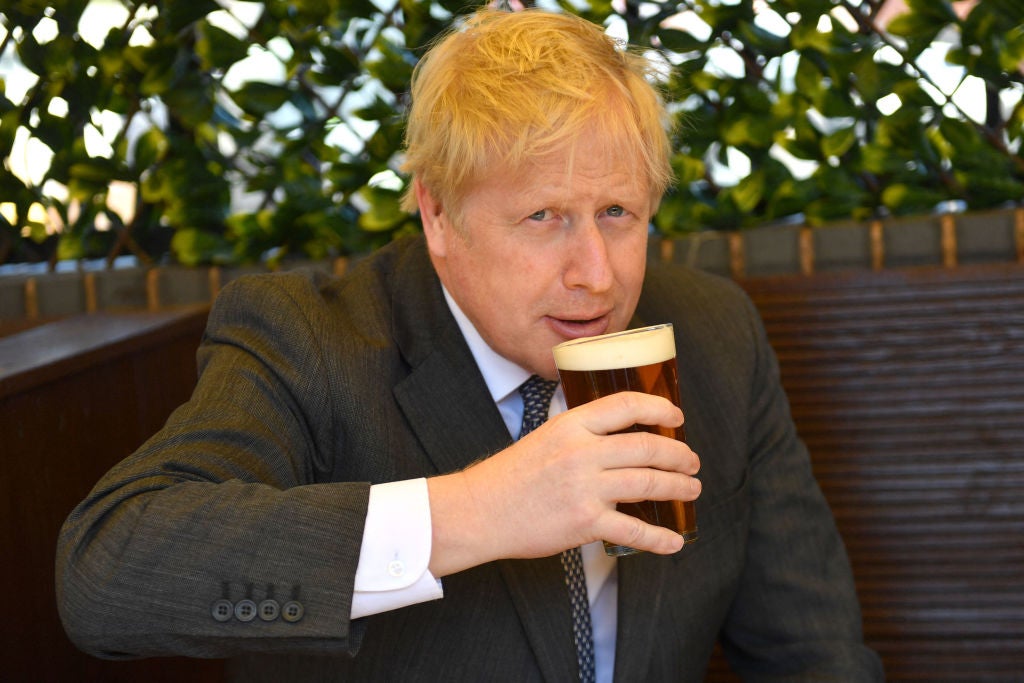Labour needs to understand why those outside London voted for Boris Johnson
In Dalston the prime minister is seen as a charlatan, an egomaniac, a posh elitist – but to the red wall-turned-blue constituencies he represents a change from the two main parties, writes Ed Dorrell


“Boris Johnson is prime minister.” Say it out loud. Let the words roll around in your mouth. How does it make you feel?
For many readers of The Independent – especially those who backed Remain in the EU referendum and who lean liberal or left politically – even saying the prime minister’s name will make them feel a little queasy.
This feeling is even stronger among Labour activists and politicians, most of whom viscerally loathe Boris Johnson and what they think he represents. Many simply can’t understand how anybody can have voted for him: he makes their skin crawl.
This is a big problem for Labour, especially if it is serious about rebuilding an electoral coalition that stands a chance of chucking Johnson out of Downing Street.
Instead of being repulsed, Labour needs to work out why so many of the voters that they need to win back (in the Red Wall and elsewhere) actively voted for Johnson in 2019 and show very limited signs of buyers’ remorse. Staring in metaphorical disbelief is not going to help anyone. Luckily, I am here to help.
But first, let’s start with the charge sheet. Johnson is, if you are to walk into a Dalston coffeeshop, seen almost universally as a charlatan, an egomaniac, a posh elitist who is actively misleading the electorate to his own ends. He is somehow simultaneously an incompetent joker too.
It is an extraordinary fact of British politics that if you move out of Dalston and take a drive up the A1 (assuming you can find some petrol), that this powerful political consensus simply evaporates. In whole swathes of the north and West Midlands, Johnson is seen in a completely and utterly different light.
I have discussed Boris Johnson in many focus groups outside London and what I have heard bears no comparison with what one would hear in the capital.
Why? Obviously, Brexit is a big part of this story. Red wall voters don’t see Johnson as incompetent, the majority see him as someone who gets things done. The vaccine roll-out is part of this story but this reputation is really based on one thing: they think he Got Brexit Done. It’s what he said he would do, and it’s what they believe he has done.
But the EU referendum is only part of it. Quite the opposite of being untrustworthy, the majority of voters in Darlington and Doncaster think that he is authentic. They believe they know where they stand with him; that he speaks his mind and will tell them what is what. They don’t mind that he’s posh (“that’s not his fault”) and even the womanising is seen as a sign of being human.
It is not to be underestimated that given a choice between going for a pint with Keir Starmer or Boris Johnson, Johnson wins pretty much every time. This is surely a reaction to the many facsimile politicians produced at the end of the New Labour era and of the Coalition. Who can imagine Nick Clegg having a pint of Fosters in a Stockton local? Johnson somehow suggests that he might buy a round – and he might rather enjoy it.
Relatedly, and importantly for Labour, Johnson is not seen as just another Tory. “How can they have voted for him as a change after nine years of his lot," people at Camden dinner parties ask. The answer is that he is seen as different, as other. He is simply not associated with Thatcher and the decline of 1980s industry – and nor is he associated with David Cameron’s administration and its austerity policies.
Johnson somehow represents a change from the two main parties who many, not unreasonably, believe let their towns down for far too long.
Could another Conservative leader have pulled off the 2019 landslide? It is extremely doubtful.
It is possible – likely, even – that some of Boris's mystique will wear off as life in Britain post-Covid and post Brexit gets tougher. It's very possible that between now and the next election the prime minister will suffer the political consequences of what looks like a genuine cost-of-living crisis combined with tax rises. It is even possible that Labour might benefit electorally from these major problems.
But as they shake their heads at the footage of the prime minister making his big speech at the Conservative Party Conference today, Keir Starmer's strategists would do well to ponder just why so many voters don't loathe him: in many cases they actively love him.
Simply asking that question would be a big step towards working out how to win the next election.






Join our commenting forum
Join thought-provoking conversations, follow other Independent readers and see their replies
Comments